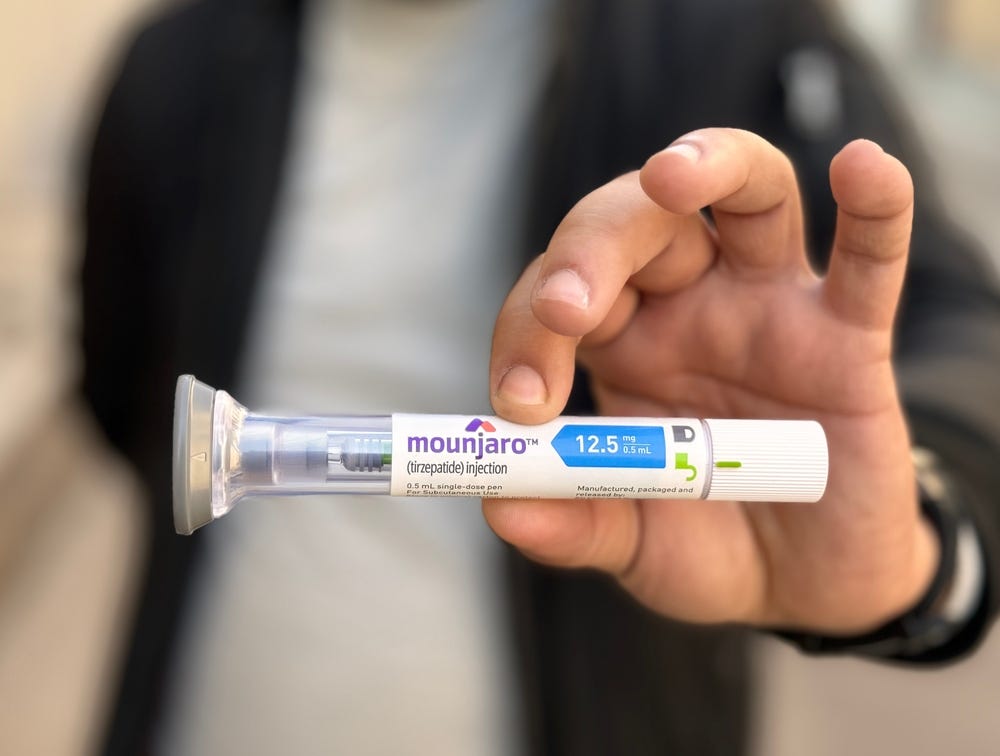Obesity drugs show heart health benefits beyond weight loss
New studies reveal GLP-1 therapies and lifestyle changes enhance heart health, reducing risks in obesity and heart failure patients.

Recent studies highlight the cardiovascular benefits of GLP-1 therapies like tirzepatide and semaglutide. (CREDIT: CC BY-SA 4.0)
Emerging research highlights the cardiovascular benefits of popular anti-obesity medications, such as GLP-1-based therapies.
Findings from several studies, recently published in the Journal of the American College of Cardiology (JACC) and presented at the American Heart Association’s 2024 Scientific Sessions, reveal promising outcomes. These studies suggest these drugs improve heart function, especially in individuals with obesity and heart-related conditions.
“These studies reinforce the potential of GLP-1-based therapies not only to aid in weight loss but also to transform cardiac health,” said Dr. Harlan M. Krumholz, editor-in-chief of JACC and a professor at Yale University. “We are achieving a deeper understanding of how weight loss, and treatment with these medications, can improve outcomes across diverse patient populations.”
Tirzepatide Shrinks Heart Size, Boosts Function
In a secondary analysis of the SUMMIT trial, researchers assessed tirzepatide, a combined GLP-1 and GIP receptor agonist. Approved by the FDA for weight loss, this drug was evaluated for its impact on heart structure in patients with heart failure with preserved ejection fraction (HFpEF) and obesity.
Among 106 patients from the main SUMMIT study, those treated with tirzepatide saw an 11-gram reduction in left ventricular (LV) mass and a 45-milliliter decrease in paracardiac adipose tissue. Both treated and placebo groups showed declines in epicardial adipose tissue (EAT). These reductions in heart size may explain the observed decrease in heart failure events.
Related Stories
Semaglutide Lowers Risk After Cardiac Bypass
Another GLP-1 receptor agonist, semaglutide, was analyzed in the SELECT trial. This study focused on patients with obesity or overweight who had previously undergone coronary artery bypass grafting (CABG) but did not have diabetes. CABG patients face increased risks of recurrent ischemic events, heart failure, and mortality, yet data on secondary prevention strategies in this group are limited.
The analysis included 2,057 CABG patients and 15,547 non-CABG patients. CABG patients were generally older, predominantly male, and had slightly lower body mass indexes.
Semaglutide reduced major adverse cardiovascular events in both groups, with a more significant absolute risk reduction in CABG patients (2.3% vs. 1%). Additionally, it decreased diabetes incidence in this group, further underscoring its potential.
Lifestyle Changes Transform Cardiac Biomarkers
Lifestyle interventions also play a critical role in heart health. The LookAHEAD trial examined weight loss-focused lifestyle changes in patients with Type 2 diabetes. Researchers found significant changes in biomarkers linked to cardiovascular disease and heart failure risks.
The study reported sustained reductions in high-sensitivity cardiac troponin T (hs-cTnT) at one and four years. Meanwhile, N-terminal pro-B-type natriuretic peptide (NT-proBNP) levels rose after one year but leveled off by year four.
Elevated levels of these biomarkers—especially NT-proBNP and hs-cTnT—were associated with higher risks of atherosclerotic cardiovascular disease (ASCVD) and heart failure. The findings emphasize the clinical relevance of monitoring these biomarkers during weight-loss interventions.
The studies collectively showcase the dual benefits of GLP-1-based therapies and lifestyle changes in managing weight and improving heart health. By addressing both obesity and its cardiovascular impacts, these approaches offer new hope for patients managing chronic conditions.
As research advances, the potential for broader application of these therapies in cardiac care grows.
Note: Materials provided above by The Brighter Side of News. Content may be edited for style and length.
Like these kind of feel good stories? Get The Brighter Side of News' newsletter.
Rebecca Shavit
Science & Technology Journalist | Innovation Storyteller
Based in Los Angeles, Rebecca Shavit is a dedicated science and technology journalist who writes for The Brighter Side of News, an online publication committed to highlighting positive and transformative stories from around the world. With a passion for uncovering groundbreaking discoveries and innovations, she brings to light the scientific advancements shaping a better future. Her reporting spans a wide range of topics, from cutting-edge medical breakthroughs and artificial intelligence to green technology and space exploration. With a keen ability to translate complex concepts into engaging and accessible stories, she makes science and innovation relatable to a broad audience.



